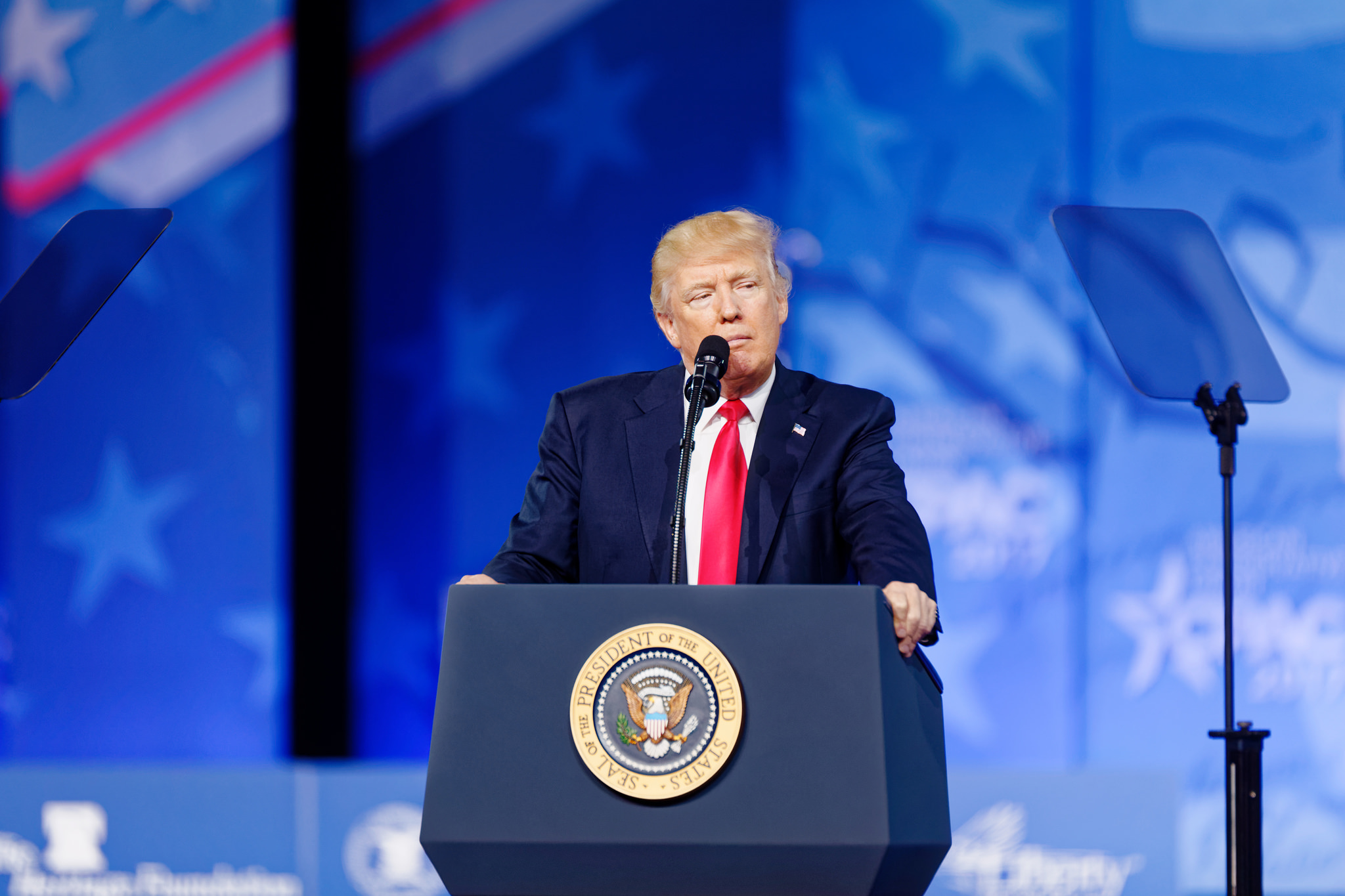
WASHINGTON — President Donald Trump said he would “certainly prefer not” to fire Deputy Attorney General Rod Rosenstein and that he may delay a highly anticipated meeting with the Justice Department’s No. 2 official.
Trump said Rosenstein denied making remarks first attributed to him in a New York Times report, including that he had discussed possibly secretly recording the president and using the Constitution’s 25th Amendment to remove Trump from office.
“I would much prefer keeping Rod Rosenstein,” Trump said at a news conference in New York. “He said he did not say it. He said he does not believe that. He said he has a lot of respect for me, and he was very nice and we’ll see.”
Trump added, “My preference would be to keep him and to let him finish up.”
Rosenstein is overseeing special counsel Robert Mueller’s investigation into Russian interference in the 2016 election and his dismissal would put that probe in jeopardy and create a political storm.
In suggesting that he might postpone Thursday’s meeting, Trump said he was focused on the extraordinary Senate Judiciary Committee hearing set for the same day with Supreme Court nominee Brett Kavanaugh and a woman who has accused Kavanaugh of sexual assault when they were teenagers.
“I may call Rod tonight or tomorrow and ask for a little bit of a delay to the meeting, because I don’t want to do anything that gets in the way of this very important Supreme Court pick,” Trump said.
The Justice Department referred questions about the scheduling of the meeting to the White House.
Any delay in the meeting would prolong the uncertainty of Rosenstein’s status. Rosenstein headed to the White House on Monday morning preparing to be fired and had discussed a possible resignation over the weekend with White House officials. But after meeting with chief of staff John Kelly and speaking by phone with Trump, he got a reprieve with the Trump meeting scheduled for Thursday.
Since then, the White House has sought to tamp down anxiety that Rosenstein would be fired.
White House officials called senators Monday to say Trump had said he wouldn’t be firing Rosenstein at the meeting, according to two people familiar with the conversations who spoke on condition of anonymity to discuss private discussions. Aides have advised Trump against taking any extreme actions ahead of the midterm elections with his party’s majorities in Congress already under threat.
“Not wanting to fire Rod Rosenstein is consistent with what I have understood for weeks, not just days,” said Rep. Mark Meadows, a North Carolina Republican who talks to Trump often.
Friends and former colleagues of Rosenstein say they didn’t expect him to step aside and give up oversight of Russia investigation and the enormous swath of Justice Department operations for which he is responsible.
Rosenstein, who has spent his entire career in government, “has tremendous loyalty to the department,” said former Justice Department lawyer and longtime friend James Trusty.
“He’s a very long-run, historical-minded guy in a lot of ways,” Trusty said. “I think he may have some confidence that history will be kinder to him than politicians are.”
Trump’s remarks Wednesday followed a chaotic period that began Friday with reports that Rosenstein had last year discussed possibly secretly recording the president and invoking the Constitution to remove Trump from office. The Justice Department issued statements Friday aimed at denying the reports, including one that said the wiretap remark was meant sarcastically.
Rosenstein appointed Mueller in May 2017, oversees his work and has repeatedly defended the breadth and scope of the probe. Trump has been critical of Rosenstein’s oversight of the probe, but the two have at times displayed a warm working relationship, and Rosenstein has been spared some of the more personal and antagonistic broadsides levelled against Attorney General Jeff Sessions.
Even if Rosenstein survives the week, it’s not clear how much longer he’ll be around. Trump has signalled that he may fire Sessions after the midterms, and Rosenstein could go with him.
But it could be sooner: Some officials around Trump believe Rosenstein’s reported musings about invoking the 25th Amendment could make it defensible for Trump to part with him, even during the final sprint to Election Day.
Rosenstein’s friends and former colleagues describe him as exceptionally committed to the Justice Department — one said he “bleeds” for the agency — and unlikely to leave on his own, though they say he respects the chain of command enough to resign if asked.
He joined the department in 1990, serving as a public corruption prosecutor, a Tax Division supervisor and a member of independent counsel Ken Starr’s Whitewater team. He was named U.S. attorney in Maryland by President George W. Bush and held the position throughout the Obama administration — remarkable longevity for a position that typically turns over with changes in political power.
Within weeks of being confirmed as deputy attorney general, he was engulfed in controversy by writing a memo critical of then-FBI Director James Comey, which the White House cited as justification for Comey’s firing.
———
Associated Press writers Chad Day, Ken Thomas and Michael Balsamo in Washington and Zeke Miller in New York contributed to this report.